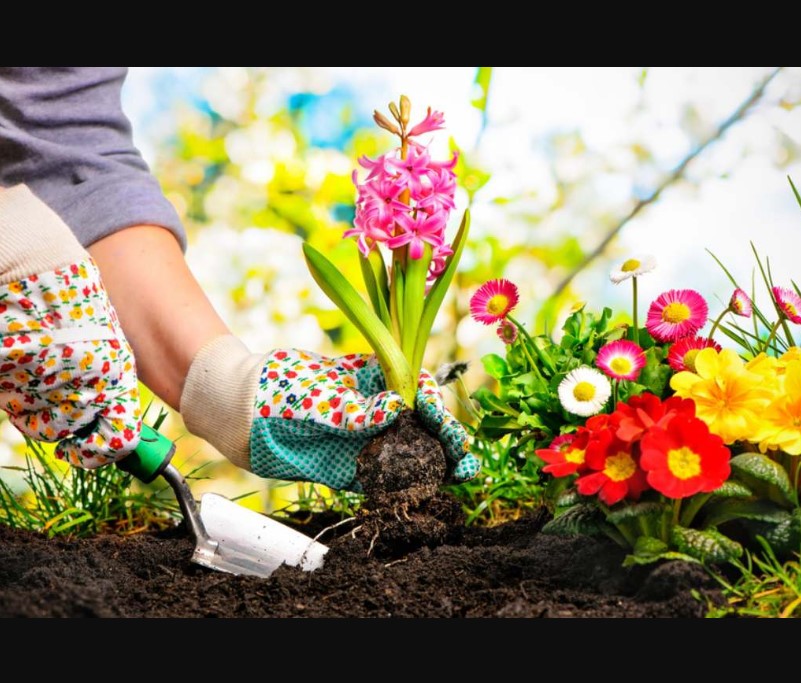Amidst the current global discourse on sustainability and environmental consciousness, organic gardening stands out as a beacon of hope for individuals seeking to reconnect with nature while fostering their immediate surroundings. Departing from the reliance on synthetic chemicals and pesticides of yesteryears, organic gardening offers a holistic approach that reveres the delicate balance of ecosystems, promotes biodiversity, and yields healthier produce. In this extensive guide, we delve into the core principles, techniques, and benefits of organic gardening, empowering you to embark on a journey towards a greener, more sustainable future.
Understanding Organic Gardening:
Organic gardening fundamentally embodies a philosophy of collaboration with nature rather than opposition to it. Unlike conventional gardening methods, which often lean on synthetic fertilizers and pesticides, organic gardening prioritizes natural remedies and sustainable practices. Central to its ethos is recognizing that fertile soil is the bedrock of a flourishing garden ecosystem. By enriching the soil with compost, mulch, and organic matter, gardeners nurture a nutrient-rich environment conducive to robust plant growth, all while minimizing reliance on external inputs.
Critical Principles of Organic Gardening:
Soil Health: Soil vitality lies at the heart of organic gardening, serving as a vital catalyst for plant growth and resilience. Organic gardeners emphasize the cultivation and upkeep of healthy soil through composting, crop rotation, and reduced tillage. By infusing the soil with organic nutrients and beneficial microorganisms, gardeners foster an environment that bolsters plant vigor and resistance to disease.
Biodiversity: Embracing biodiversity is another cornerstone of organic gardening philosophy. By cultivating a diverse array of plant species, gardeners attract beneficial insects, birds, and wildlife that contribute to pest control and pollination. Companion planting, the strategic pairing of compatible species, enhances biodiversity and optimizes space utilization and resource allocation within the garden.
Natural Pest Management: Unlike chemical pesticides, organic gardeners employ various natural pest management strategies to combat garden pests. These methods may include introducing beneficial insects like ladybugs and lacewings, utilizing physical barriers such as row covers and netting, and implementing crop rotation to disrupt pest life cycles. By maintaining a harmonious balance between predators and prey, organic gardeners effectively manage pest populations while minimizing harm to beneficial organisms and the ecosystem.
Water Conservation: Water conservation is critical in organic gardening, particularly in regions susceptible to drought or water scarcity. Techniques such as mulching, drip irrigation, and rainwater harvesting optimize water usage and reduce dependence on municipal water sources. Additionally, selecting drought-resistant plant varieties and adopting water-saving practices like deep watering and strategic irrigation scheduling further enhance water efficiency in the garden.
Benefits of Organic Gardening:
Healthier Produce: Organic gardening yields fruits and vegetables free from synthetic pesticides and chemical residues, ensuring safer and healthier options for consumption. Moreover, organic produce tends to be richer in essential nutrients and antioxidants, offering superior flavor and nutritional value compared to conventionally grown counterparts.
Environmental Sustainability: Organic gardening promotes ecological equilibrium and sustainability by minimizing the use of synthetic chemicals and fostering biodiversity. Organic practices contribute to soil fertility preservation, water quality protection, and pollinator population conservation, thus bolstering the overall health of ecosystems and mitigating agriculture’s environmental footprint.
Cost Savings: While the initial investment in organic gardening may require some dedication and resources, the long-term benefits outweigh the costs. By leveraging natural fertilizers and pest control methods, organic gardeners can reduce their reliance on costly inputs and chemical treatments, ultimately saving money while nurturing a thriving garden ecosystem.
Connection to Nature: Organic gardening offers a unique avenue for individuals to reconnect with the natural world and cultivate a profound appreciation for the cycles of growth and renewal. Tending to a garden fosters a sense of fulfillment and connection as one witnesses the miraculous transformation of seeds into thriving plants, forging a deep bond with the earth and its rhythms.
Getting Started with Organic Gardening:
Assess Your Space: Before starting your organic gardening journey, assess your available space, sunlight exposure, and soil quality. Select a location with ample sunlight and well-drained soil conducive to plant growth.
Plan Your Garden: Design a garden layout that maximizes space efficiency and integrates principles of companion planting and crop rotation. Consider different plant species’ unique needs and preferences, including soil pH, moisture requirements, and growth habits.
Prepare the Soil: Prioritize soil health by amending it with compost, aged manure, or organic fertilizers to provide essential nutrients for plant growth. Conduct soil pH tests and make necessary adjustments to create optimal conditions for your chosen crops.
Select Your Plants: Choose a diverse array of plants suited to your climate and growing conditions, encompassing vegetables, herbs, fruits, and flowers. Opt for organic or heirloom varieties whenever possible to support biodiversity and preserve genetic diversity in the garden.
Implement Organic Practices: Integrate organic gardening techniques such as mulching, companion planting, and natural pest management to promote soil health and ecosystem resilience. Refrain from using synthetic chemicals and pesticides, opting for organic alternatives safe for humans, wildlife, and the environment.
Maintain Your Garden: Regular upkeep is essential for a thriving organic garden. Monitor soil moisture levels and weed diligently, and inspect plants for signs of pests or disease. Employ proper pruning and harvesting techniques to nurture plant health and productivity throughout the growing season.
Conclusion:
Organic gardening stands as a transformative approach to food cultivation and environmental stewardship. By embracing the principles of soil health, biodiversity, and natural pest management, organic gardeners cultivate thriving ecosystems that yield abundant, nutritious harvests while safeguarding the planet’s health for generations to come. Whether you’re a seasoned gardener or a novice enthusiast, organic gardening offers a fulfilling journey toward a greener, more sustainable future. So, roll up your sleeves, dig into the soil, and join the green revolution today!

